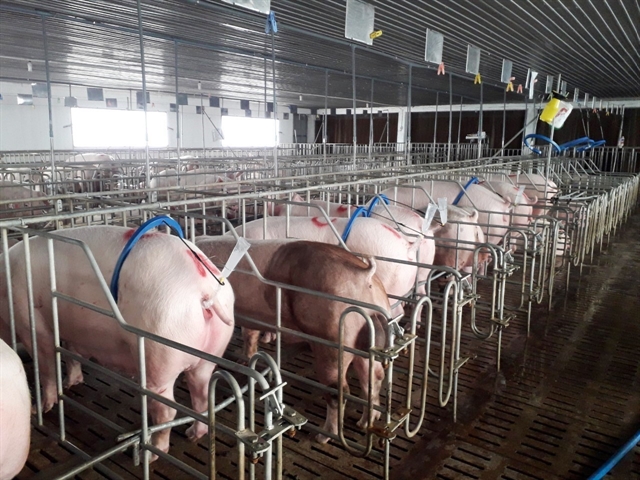Forming more disease-free farming zones is seen as critical to exporting livestock products as few such zones in Viet Nam meet the World Organisation for Animal Health (OIE) standards.

Forming more disease-free farming zones is seen as critical to exporting livestock products as few such zones in Viet Nam meet the World Organisation for Animal Health (OIE) standards.
The country exported 2,150 tonnes of meat and related products worth US$6.95 million in April, up 27.1 per cent in volume and 3.7 per cent in value compared to March, with Hong Kong (China), mainland China, and Thailand among the main destinations, data from the General Department of Viet Nam Customs showed.
The Cong Thuong (Industry & Trade) newspaper cited Nguyen Van Long, Deputy Director of the Department of Animal Health at the Ministry of Agriculture and Rural Development, as saying Viet Nam must comply with international regulations to export animal products, including those set by the World Trade Organisation (WTO) and the OIE.
Exports of animals and related products can only come from countries and territories that have farming establishments and zones free of disease and ensure biological safety.
As of May, Viet Nam had 2,288 closed farming establishments and zones but these only satisfy Vietnamese standards, with none meeting OIE requirements, Long pointed out.
He added that as outbreaks of dangerous disease are spreading, many countries have set up strict requirements on imported fresh products. Meanwhile, Viet Nam faces difficulties in organising safe animal farming, especially in terms of disease control, monitoring of farming zones, and grassroots safety chains.
Recently, authorities have stepped up negotiations on animal product exports with some countries, Long said, noting that to secure smooth exports the most important issue is that such products hail from disease-free zones meeting OIE rules.
To do this, it is first necessary to exert sound control over disease outbreaks and minimise the risk from animal diseases nationwide. A national programme for monitoring and certifying animal products should also be carried out to pave the way for exporting qualified products, he said.
There are 15 disease-free zones around the country at present, and co-ordination with localities is needed to help such zones under Vietnamese standards meet OIE requirements.
Long recommended cities and provinces devise plans to form and maintain disease-free animal farming zones while paying attention to animal husbandry. — VNS





